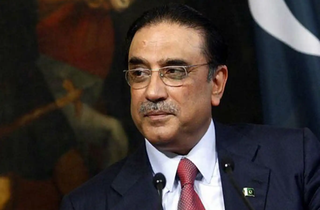Zardari secured 411 votes from national and provincial lawmakers, while his opponent Mehmood Khan Achakzai, backed by the party of imprisoned former Prime Minister Imran Khan, received 181 votes.
The Pakistani presidency is largely ceremonial, and Zardari previously held the position from 2008 to 2013. He was the joint candidate of the ruling Pakistan Muslim League (PML-N), led by Prime Minister Shehbaz Sharif, and his political allies.
Zardari's victory was anticipated due to his alliance with Pakistan’s other political dynasty, the Sharifs, and his pivotal role in forming a coalition government after the disputed national parliamentary election on Feb. 8.
Prime Minister Sharif congratulated Zardari on his election, stating that he would be a symbol of the federation's strength and expressing hope for his effective fulfillment of constitutional responsibilities.
Zardari's opponent, Achakzai, also extended congratulations, acknowledging the free and fair conduct of the vote. Zardari is recognized for his adept handling of complex political and other issues.
The previous month's election was marred by militant violence, a widespread cellphone shutdown, and allegations of vote-rigging from Khan’s party. Imran Khan, ousted from office in 2022, faces multiple legal challenges and is currently serving prison terms.
Zardari, too, has faced legal scrutiny, spending 11 years in detention before assuming the presidency. Despite various indictments, he has not been convicted and denies any wrongdoing. He is set to take the oath of office on Sunday. (ILKHA)



 Güncel
Güncel
 Dünya
Dünya
 Güncel
Güncel
 Güncel
Güncel
 Güncel
Güncel
 Dünya
Dünya
 Dünya
Dünya
 Dünya
Dünya
 Güncel
Güncel
 Güncel
Güncel





